At the start of the COVID-19 pandemic, a group of local North Texas innovators acted fast to form Get Shift Done. The nonprofit was meant to support unemployed hospitality and service workers who lost their paychecks while at the same time supporting local organizations that impacted hunger relief. Now, the team is going national.
Through a newly formed fund, Get Shift Done will be able to address the unemployment and hunger relief needs across the country.
Get Shift Done is a two-fold initiative. It gives hourly workers displaced by COVID-19 direct income, but at nonprofits also in need of help. While serving shifts at local food pantries, soup kitchens, shelters, and community agencies, relief is provided to Dallas’ children, elderly, individuals, and families.
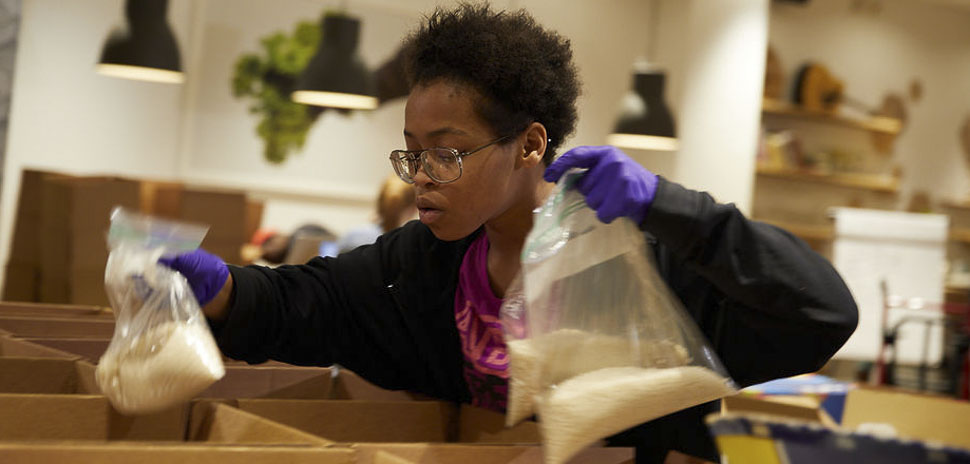
A Get Shift Done worker adds rice to meal boxes for RISD at Cafe Momentum. [Photo: Chad Windham]
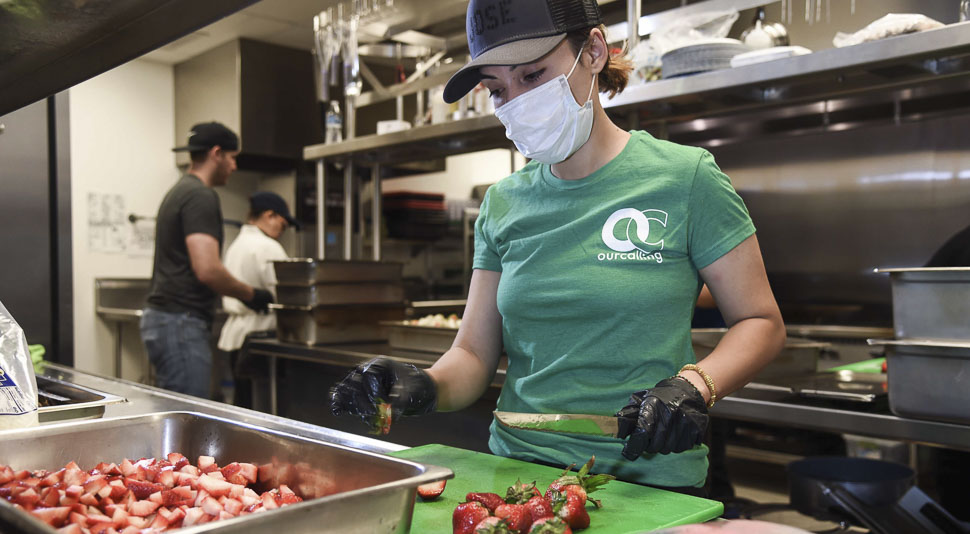
A North Texas Get Shift Done worker, Rosa Mendoza, working at OurCalling. [Photo: Klekamp Group]
At the time Get Shift Done was formed, the country’s unemployment rate was moving up quickly from a low 3.5 percent. It was only supposed to be a temporary initiative—but in 90 days, 44 million people applied for unemployment and food insecurity rose to one in five households.
The initiative’s Dallas-based founders—Anurag Jain, chairman of Access Healthcare, and Patrick Brandt, co-founder and president of Shiftsmart—started receiving a wave of responses from other cities requesting the model be expanded.
Jain and Brandt launched the idea with support from their respective companies, community leaders, restaurant owners, and other nonprofit organizations, such as the North Texas Food Bank, where Jain serves as chairman of the board. Shiftsmart, a worker-centric online marketplace that helps companies facing staffing requirements, used its platform and operations team to handle the shifts. And, the food bank’s existing infrastructure was leveraged to match workers to availability.
“We heard from other cities wanting to launch the program in their communities and found strong partners in Austin, Central Arkansas, El Paso, Houston, Lufkin, New Orleans, Northwest Arkansas, Rio Grande Valley, San Antonio, and Washington D.C,” Brandt said in a statement. “They directed us to the food banks with strong infrastructure in place, allowing us to rapidly help provide food to families in need.”
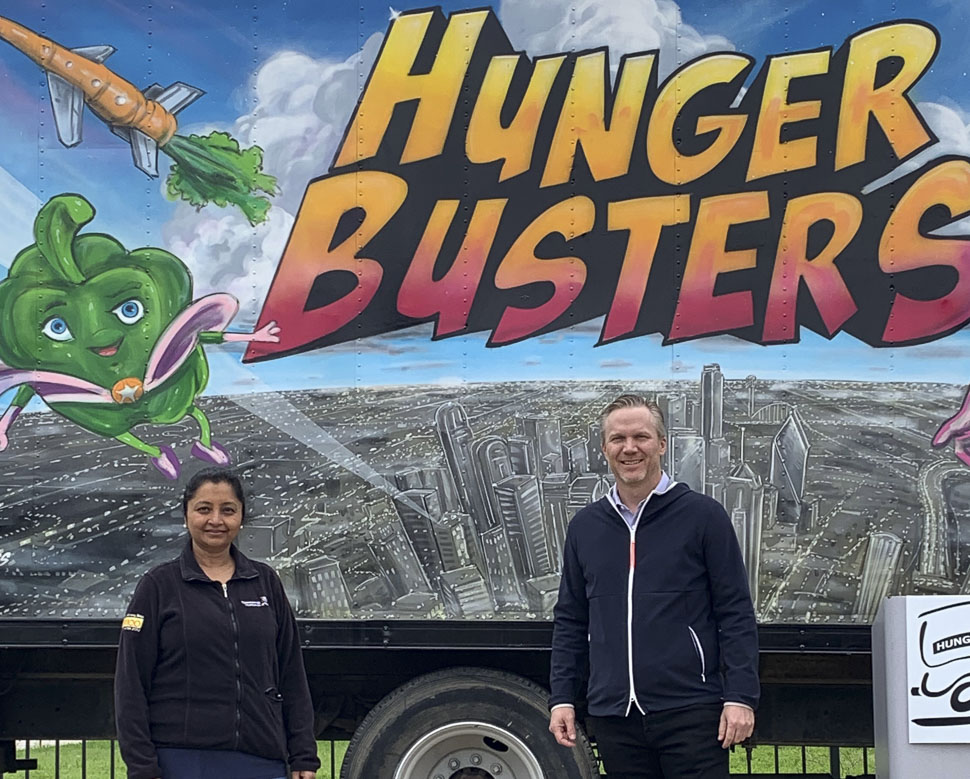
Sejal Desai and Shiftsmart’s Patrick Brandt at Hunger Busters. [Photo: Chad Windham]
The fund has now brought on more local leaders to expand—and shifted their focus.
Get Shift Done for North America was launched with flagship supporters Capital One, Sarah and Ross Perot Jr. Foundation, Access Healthcare, and Shiftsmart. Regional supporters include national hospitality foundations The J. Willard and Alice S. Marriott Foundation and The Conrad N. Hilton Foundation.
“When you see an innovative, simple and efficient solution that directly responds to urgent issues like hunger relief and unemployment, we are deeply grateful to participate,” Ross Perot, Jr., chairman of The Perot Companies and Hillwood Development, said in a statement. Perot was a supporter of the initiative from the get-go.
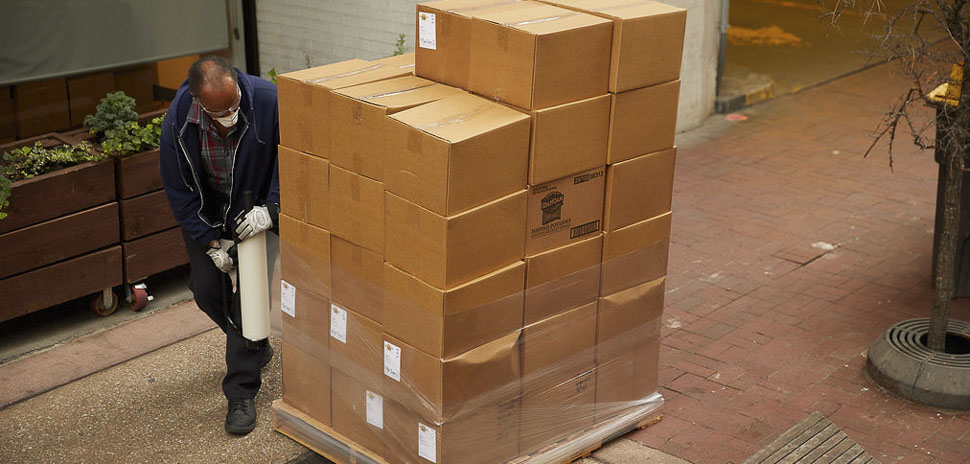
[Photo: Chad Windham]
Get Shift Done for North America provides seed money to match funds with participating cities implementing hunger relief programs. According to the initiative’s leaders, it works like this: “Each additional city identifies its participating workforce and nonprofit local food access providers, then launches the program with the donated use of Shiftsmart’s hourly worker marketplace platform technology to register and match workers for shifts.”
And the model is working. Get Shift Done started with a few local food providers and less than 1,000 registered unemployed hospitality workers.
In the 90 days since it was founded, it has expanded to 11 cities, served 18 million meals, provided workers to more than 70 nonprofits, provided 165,000 hours of paid work to displaced hospitality workers, and now has 11,000 workers registered.
“At Capital One, we are focused on supporting the relief and recovery of people impacted by COVID-19, and swiftly addressing the evolving needs of our communities,” Andy Navarrete, head of external affairs at Capital One, said in a statement. “As a national partner of Get Shift Done, we see power in their workforce development model, and believe harnessing such ingenuity will be what gets us through our collective recovery.”
Considering the unemployment rate for hospitality workers last month was 35.9 percent, there’s an apparent demand to fill.
“The alliance of these new communities and Get Shift Done is a win for both sides,” Jain said in a statement. “When you apply a large displaced workforce in the food, beverage and hospitality industries, an innovative solution emerges that provides an answer to many needs.”
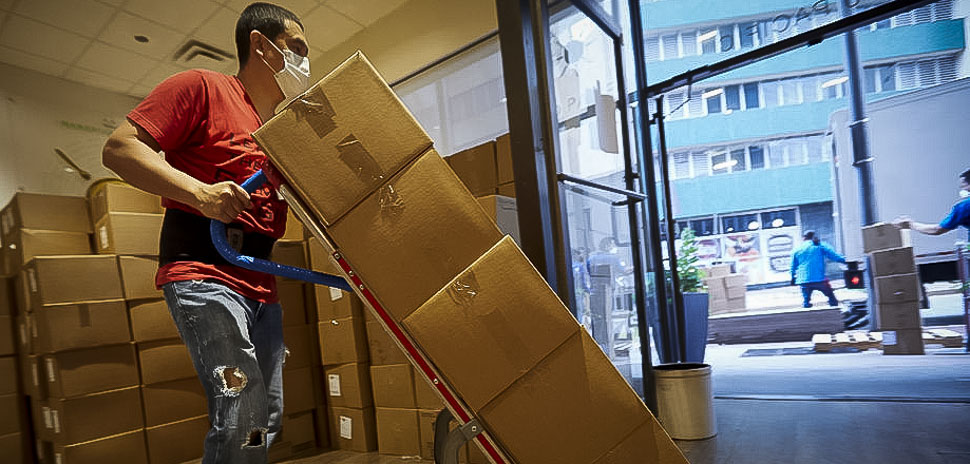
[Photo: Chad Windham]
![]()
Get on the list.
Dallas Innovates, every day.
Sign up to keep your eye on what’s new and next in Dallas-Fort Worth, every day.










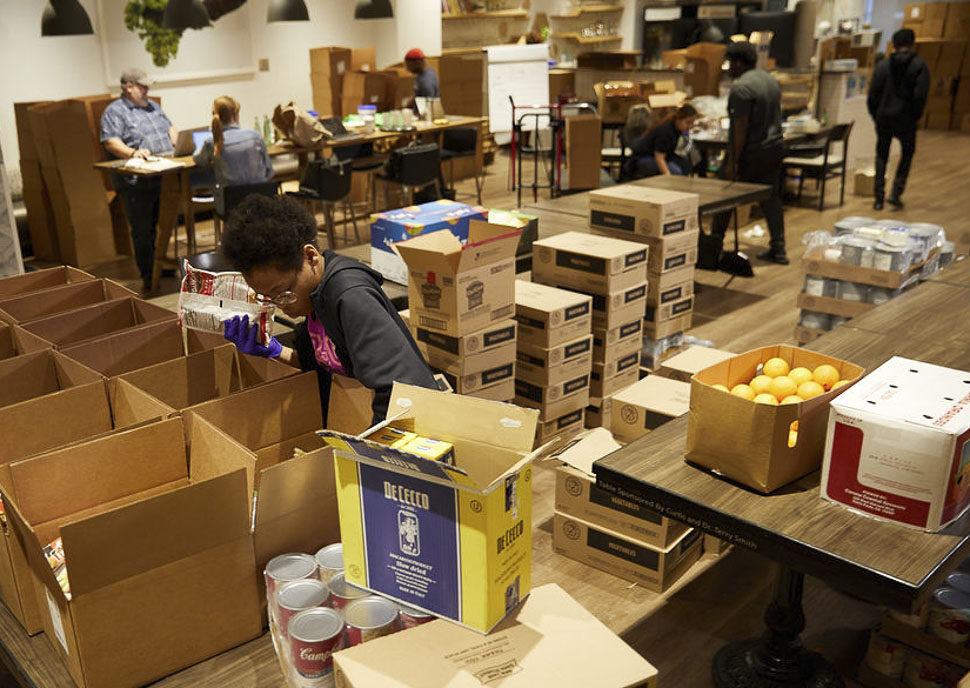



![Dr. Justin Lonon, vice chancellor of Dallas College, addresses the crowd at the recent Goldman Sachs 10,000 Small Businesses Dallas Graduation. [Photo: 10KSB]](https://s24806.pcdn.co/wp-content/uploads/2021/06/GoldmanSachs-10KSB-4992-970-970x464.jpg)



















































